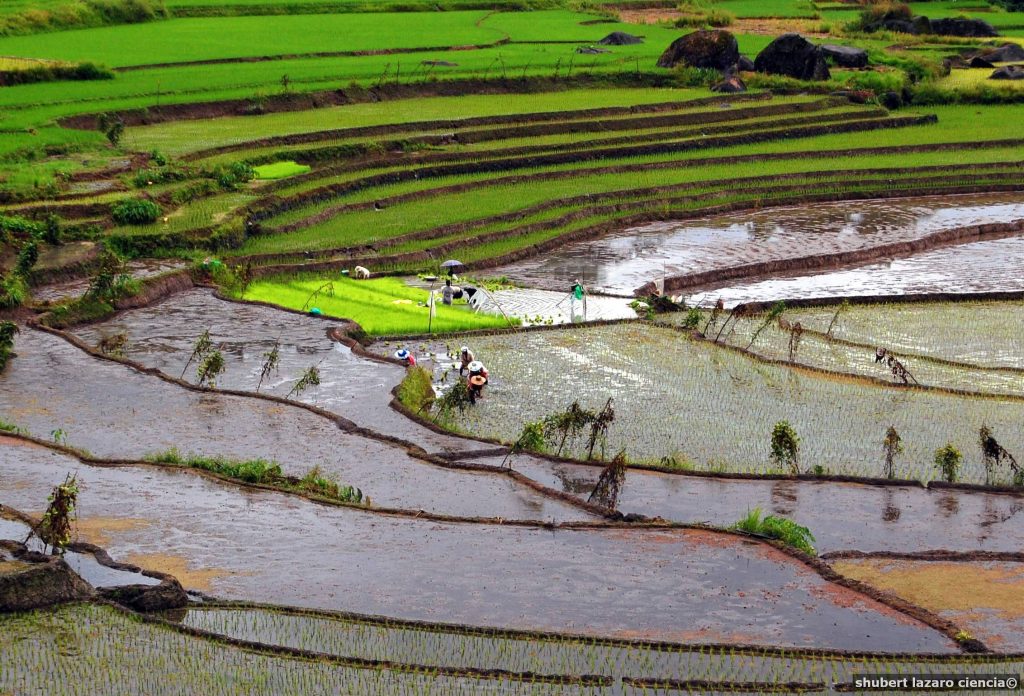Rice tariffication and uncontrolled rice imports will displace rice farmers and worsen food insecurity without solving the problem of expensive rice, research group IBON said. The government is using high inflation to justify rice sector liberalization according to long-standing demands of the World Trade Organization (WTO) and big foreign agricultural exporters. Domestic agriculture should be strengthened with ample government support instead of being prematurely opened up to cheap foreign government-subsidized imports from abroad, said IBON.
Senate Bill 1998 or the Rice Tariffication Bill, which was approved by the Philippine Senate on third and final reading recently, is currently undergoing bicameral deliberation. Government said that this will protect the rice industry from volatile prices, and consumers from rising inflation. The measure is also supposed to earn Php10 billion annually which will be used to fund development of the local rice industry.
IBON however stressed that uncontrolled rice imports will drive rice farmers into worse poverty. If the Philippines imports two million metric tons of palay, for instance, some 500,000 of around 2.4 million rice farmers will be adversely affected. Even the government’s own Philippine Institute for Development Studies (PIDS) projects a 29% decline in rice farmers’ incomes from a Php4-decrease in palay farm gate prices when rice tariffication is implemented.
As it is, farmers’ average monthly income of Php6,000 at the Php21 farmgate price is already far short even of the government’s understated Php9,064 average poverty threshold for a family of five. It is also not even one-fourth (23%) of IBON’s estimated monthly family living wage (FLW) of Php26,026 for a family of five as of October 2018.
Filipino rice farmers are unproductive and domestically-produced rice is unnecessarily expensive because of long-standing government neglect of the agriculture sector. No more than 5% of the national budget has been given to agriculture over the last two decades. The Duterte administration does not correct this and, for instance, the Php49.8 billion 2019 Department of Agriculture (DA) budget it submitted to Congress in July is just 1.3% of the national budget and even Php862 million less that its cash-based equivalent of Php50.7 billion this year.
The hyped Php10 billion (US$190 million at current exchange rates) rice development fund of the Rice Tariffication Bill is too little and too late, said IBON. This compares unfavorably to rice industry support given by other rice producers including some countries the Philippines imports rice from — Vietnam (US$400 million), United States (US$619 million annually), Thailand (US$2.2-4.4 billion), India (US$12 billion), Japan (US$16 billion), and China (US$12-37 billion).
IBON also pointed out that there is no guarantee that retail rice prices will be lower in the long run with unhampered importation. Relying on rice imports makes the country vulnerable to higher world market prices as well as to rice production and export decisions of other countries. In 2008, for instance, IBON recalled bow Vietnam, India and Pakistan restricted their rice exports amid rising global rice prices. Thailand also raised the idea of creating a global rice cartel similar to that for oil exporting countries.
Government’s neoliberal prioritization of food imports and production of crops for export should be reversed, IBON said. The Philippine government should instead strengthen the local rice industry. This begins with free land distribution to all willing tillers, followed by giving substantial support for rice producers, and taking control of the market to ensure reasonable prices for rice and other agricultural produce. ###

